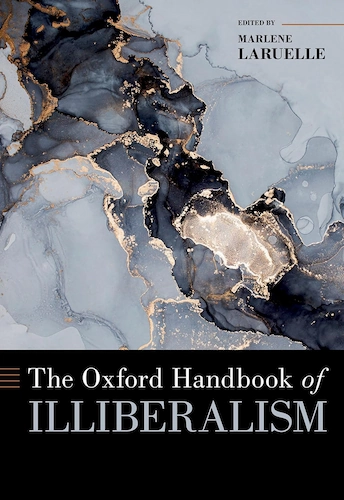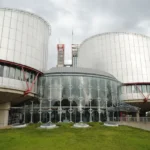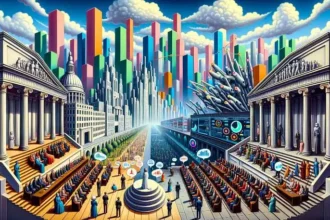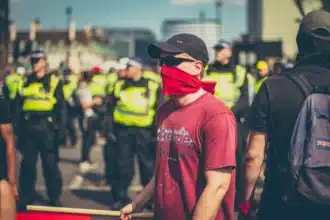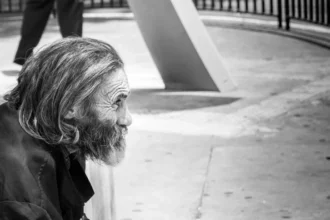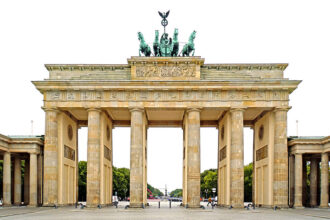From Populism to Illiberalism: A Shift in Analytical Focus
Scholarship on populism has dominated the last two decades but is now retreating in the face of a new concept that seems better equipped to capture the current transformations in our society: that of illiberalism. Illiberalism emerged first in the transition studies field (one may recall Fareed Zakaria’s famous “Illiberal Democracy” article in Foreign Affairs from 1997), as well as in the Asian Studies field, with studies on the rise of East Asian values embodied by Singapore.
- From Populism to Illiberalism: A Shift in Analytical Focus
- Defining Illiberalism: Core Features and Conceptual Foundations
- The Global Landscape of Illiberalism
- Inside Trumpism: Competing Visions of American Illiberalism
- Interdisciplinary Approaches to Studying Illiberalism
- Illiberalism Studies and the Future of Democratic Scholarship
- Explore Books Written by Our Contributors
It then grew to encompass the Central European democratic backlash, encapsulated by Viktor Orbán’s Hungary, before eventually reaching the study of the well-established Western democracies and their liberal erosion in the 2010s. The move from an adjective, “illiberal,” to a noun, “illiberalism,” reflects both the intellectual thickening of the protest mood against the current social order and, simultaneously, a better conceptualization of it in the scholarship.
The research agenda for illiberalism studies is as broad as our societies that are getting transformed and moving away from the post-World War II political order.
The concept of illiberalism indeed provides a far better descriptor than does populism, as the former asserts that we have moved well beyond the stage of a mere protest mood: parts of our constituencies are now ready to experiment with different social orders. The collective political imagination has reopened, and liberalism is no longer the obvious consensus normative model. What is at stake here is therefore not just the dominance of a communicative style and policy approach such as populism, nor a regime category such as authoritarianism, but rather an entire socio-political ideology.
Defining Illiberalism: Core Features and Conceptual Foundations
I define illiberalism (see my previous writings on it here and here) as necessitating two components: (1) a critique of liberalism, either as a philosophy or a practice, in combination with a prior experience of liberalism before backlashing against it, and (2) the promotion of an alternative political project based on five criteria:
- a) a belief in the primacy of executive power and majoritarianism over and against institutional checks and balances and minority rights,
- b) a defense of the sovereignty of the nation-state over and against supranational institutions and international law,
- c) a call for a realist and transactional foreign policy in a multipolar world based on a civilizationalist interpretation
- d) advocating for the cultural homogeneity of the nation over and against multiculturalism, and
- e) demands for respect for and preservation of traditional hierarchies and values over and against those of left-progressivism.
To capture both the complexity and diversity of illiberal experiences, this definition relies on three major assumptions.
- First, it does not see illiberalism as the polar opposite of liberalism, but as a part of a continuum as one gradually moves away from liberal norms.
- Second, it posits that illiberalism is not external to liberalism but a byproduct of it. This means that, depending on the context, the supply side of illiberal politics can rely on some forms of liberalism, especially on economic liberalism and neoliberalism (see Raphaël Demias-Morisset’s study on these linkages), and can claim descent from within liberalism’s genealogy, for instance stating it is the authentic form of liberalism as opposed to a depraved progressivist or woke ideology.
- Third, it argues that illiberalism is context-sensitive: it takes different forms depending on time and space, adapts itself to national political cultures, and can be expressed either in moderate or radical ways.
The Global Landscape of Illiberalism
Contrasts Between U.S. and European Illiberalism
A good example of this context-sensitivity has been the gap between US and European illiberal experiences. The second Trump administration has been much more radical in its statements, the speed of its deconstruction of liberal institutions, and its vision of the international arena than all European versions of illiberalism.
Even the most entrenched illiberal regimes such as those of Vladimir Putin in Russia, Recep Tayyip Erdoğan in Turkey, Viktor Orbán in Hungary, or Aleksandar Vučić in Serbia took years to deconstruct liberal institutions and values. Giorgia Meloni in Italy has been acting in a much softer way, keeping within the EU legal and cultural framework.
Moreover, the radicalism of the Trump II of illiberalism has taken its illiberal fellow travelers in Europe by surprise and forced them to move away from Washington or to at least remain silent or discreet about their relationship to Trump in order to stay in sync with opinion in their own publics.
Fragmentation Between North, East, and South
This means that even when there is a shared vision of the social order along the lines I laid out above in the definition of illiberalism, the geopolitical and sociological realities of each country’s illiberal constituencies may not allow for deep synergies among them.
The way we imply liberalism as the obvious best normative order may obscure the continuum between liberal and illiberal political practices.
We see the same in the case of the Russo-American rapprochement of early 2025: even if Donald Trump and Vladimir Putin share similar illiberal values and are both committed to re-engagement, that is still not enough to elaborate a common language that would allow for an easy ceasefire in Ukraine. Another key element of this context-sensitive aspect has been the discrepancy between illiberal projects in the so-called Global North and Global South.
In the Global South, the supply side of illiberalism is deeply rooted in the idea that liberalism and colonialism have been two sides of the same coin, and that illiberalism is a way to decolonize from Western (read: liberal) normative pressures and/or from Western geopolitical domination.
While the definition of illiberalism proposed here attempts to capture both similarities and differences, illiberal projects can combine multiple visions of what a non-liberal or post-liberal future should look like.
The European models of illiberalism are close to each other, with nuances in their degrees of moral conservatism (anti-abortion or not, opposed to same-sex marriage or not, etc.), nationalism (all want fewer migrants, but some call for assimilation policies while others publicly promote “remigration” and hate against some clearly identifiable minorities), institutional transformations (Western European versions are more loyal to classical liberal institutions than Central European ones), and economic policies (ranging from neoliberalism to classical economic liberalism all the way up to more welfare-oriented economic policies).
Inside Trumpism: Competing Visions of American Illiberalism
The American case looks much more diversified, with multiple strands coalescing around Trump but with strong internal tensions nonetheless. One can identify four big schools of thought: traditional establishment Republicans who eventually rallied around Trump for opportunistic reasons and trying to push him toward a classic, Reaganite type of presidency, and three strands that are new and directly connected to Trump’s rise.
The first strand is that of the so-called post-liberal intellectuals (Adrian Vermeule, Patrick Deneen, Sohrab Ahmari, etc.). They are often Catholic; they call for a conservative, religious, non-consumerist society, rejecting what they interpret as moral nihilism. They are focused on collective, not individual, well-being, based around small, closed communities. This group contains intellectual figures who had already rallied to Trump in 2016, such as those linked to the Claremont Review of Books, as well as some who were more critical of him during his first presidency but then rallied around him during his second campaign.
A second strand, that of the revolutionary nationalist right embodied by political strategist Steve Bannon, believes in a white American nation made of working-class religious citizens. This strand is directly connected to far-right movements such as the alt-right, white supremacism, militia movements, which are openly prone to violence.
The third strand, that of the tech right , with Peter Thiel and Elon Musk among its most prominent figures, offers a libertarian dystopia in which a select elite of wealthy men will be able to live in a technologically-augmented reality, travel to space, reproduce on a quasi-industrial scale, and leave the rest of humankind to languish on a polluted, overpopulated planet.
There is little in common between a project centered on a Christian rehabilitation of human ontology and a project that believes AI will easily replace most humans. And yet some, like Patrick Deneen, have tried to assert that there is symbiosis, and not contradiction, between these two currents. But the fact that US Vice President J. D. Vance himself, a follower of both currents, personifies this symbiosis, does not resolve its philosophical contradictions. It also remains to be seen how the explosive end of the Trump-Musk bromance might impact the place of this third strand in the global blend of Trumpism.
Interdisciplinary Approaches to Studying Illiberalism
With this definition of illiberalism one can do work from different social science perspectives. Political science allows us to connect illiberal values and aspirations with regime type. Illiberalism does show ideological affinities with authoritarianism, but it does not overlap with it and it can be deployed, and partly experimented with, inside a democratic framework.
Political philosophy pushes us to rethink the multiplicity of liberalisms and their contradictions and internal tensions—previous forms of liberalism have historically been able to coexist with colonialism, slavery, and eugenics, and only more recently has mainstream liberalism become progressive under left-wing pressures.
Legal studies investigate how illiberal leaders learn how to speak a liberal constitutional language to transform our institutions and put them at the service of their cause. Sociology explores the systemic supply-side reasons behind the rise of illiberal leaders: fears of downward mobility, socioeconomic and professional insecurity, rapid cultural changes, media ecosystems polarizing debates over the public good, extreme individualism reducing our shared values system, etc.
Last but not least, cultural studies can tell us that individuals build their ideological worldviews through everyday lived experiences, family upbringing, attachment to place, and the cultural products they consume, meaning that the attraction to illiberal values happens at the grassroots level as well as through narratives that may be only tangentially about politics.
Illiberalism Studies and the Future of Democratic Scholarship
The research agenda for illiberalism studies is as broad as our societies that are getting transformed and moving away from the post-World War II political order. One must take into consideration the serious considerations related to the role of scholarship in contributing to public debates.
Explore Books Written by Our Contributors
The way we name illiberal forces can lead us to whitewash political projects founded on antidemocratic and racist values; conversely, the way we imply liberalism as the obvious best normative order, too, shapes the public space and may obscure the continuum between liberal and illiberal political practices.
Moreover, scholars have to work in increasingly challenging fieldwork conditions, including within liberal democratic frameworks, and higher education institutions are globally challenged by both political and neoliberal pressures. All these entanglements make the field of illiberalism studies a central prism of our societal evolution. Visit the Illiberalism Studies Program at The George Washington University to learn more about all these crucial questions of our time.



